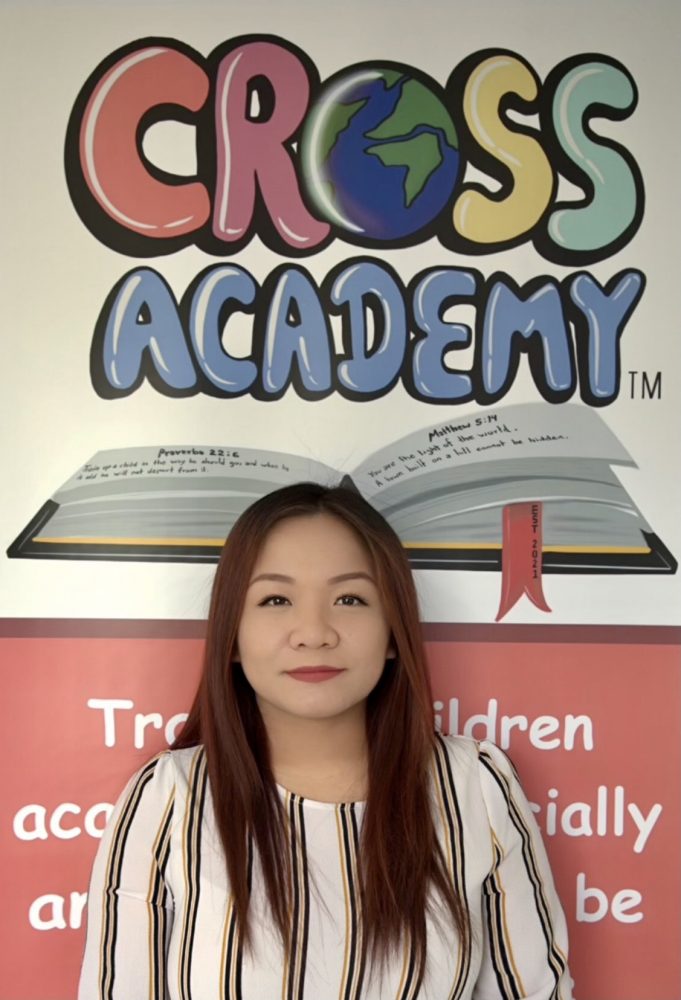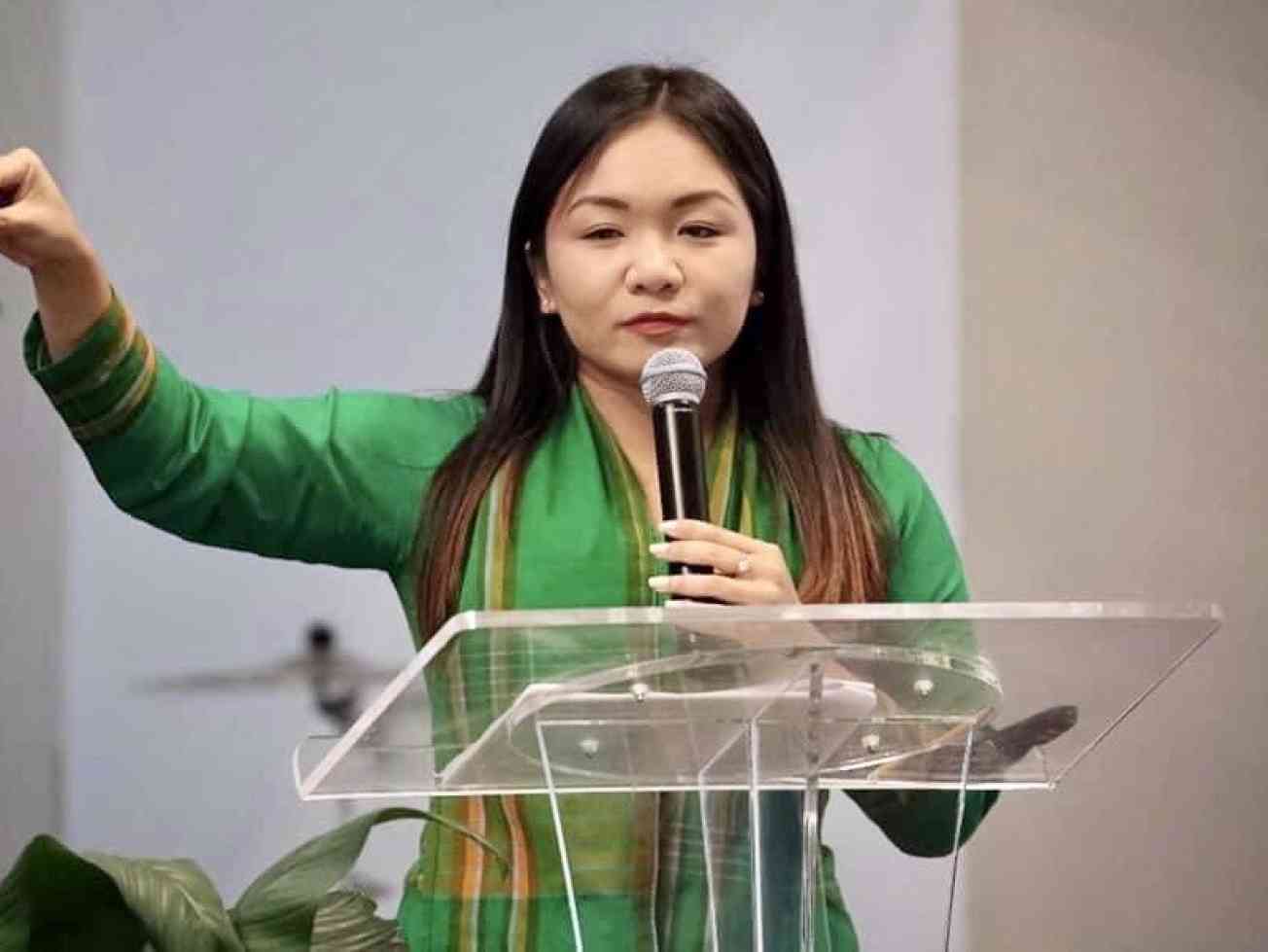Generation 1.5 Mentor-Bridging the Generational Gaps in Chin-American Families
Rosie Par

My story is a little different because I’m not a “typical” refugee. I’m kind of like generation 1.5, - I’m an in-between. I was born and raised in India because my parents fled from Burma after they got married. It was just so crazy during that time and they didn’t want their kids to grow up there.
I lived in India for five years and then we arrived in Maryland, not as refugees, but as a family seeking asylum. When I got here, I was five years old and, until 2007, not a lot of Chin people lived in DC. That’s when it really opened up for refugees from Malaysia to the US and we started meeting Chin friends. That’s also when I started learning about the real refugee stories and learning about my own people and what they went through.
When I came here I never had a mentor, a Chin-American mentor, to teach me how to apply for college, and just help me with the little stuff. There were no Chin teachers before 2007. We had Sunday school teachers, but they taught us in Chin style. I always wished I had a mentor; however, not having a mentor gave me the hunger, the urge, to be that for the next generation. Since we’re a very tight community I call the younger generation my siblings. I like that term.
There are a lot of people who have the opportunity of going back to Burma, I went there with an internship two years ago. I taught in Burma for a month and a half. That’s when I got to really learn and see what it’s like to grow up there. Now I have a deeper empathy for my people. This helped inspire me to help U.S.- raised kids know what their parents went through.

Many Chin-American kids would say “My parents don’t understand me.” But I say “No, you have to understand them. You are the ones who get opportunities that they never had.” With everything that’s happening now, it’s the youth of the Chin community who are getting a better understanding of their heritage and country, and they are the ones out there posting on social media every day about the uprisings. I think it’s because of how these youth grew up. They see that Americans like human rights - that you speak up for people who are oppressed and can’t speak up for themselves. We can speak up for our home country. The youth are very passionate and outspoken about the Myanmar crisis. In another sense, I am glad they’re getting the opportunity to see this moment in Myanmar history and get a sense for the cruelty that their parents had endured. It’s almost like they have a privilege that their parents didn’t have - to speak in defense of freedom.
About four years ago I moved to Indianapolis and recently, I opened a small ministry/business. It’s an after-school tutoring and mentorship program called Cross Academy. Our motto is “Training up children, academically, socially and spiritually, to be the light of the world, by the Word of God”. It’s going really well! I posted an advertisement video and two days later all the spots were full. I can see that these parents have been waiting for something like this.
I tell them that I want them to be part of the solution, not part of the problem. I try to input a proactive mentality in all the students I mentor. I always teach them to have a vision and a goal and to work to reach that goal. My two big mottos I use when teaching are: be the person you wanted to be when you were younger and be the change you want to see.
The Chin are an ethnic minority group from Myanmar (formerly known as Burma). They are often referred to by the Burmese as mountain people, and are one of two Christian minority ethnic groups within Myanmar. The majority of the population is Buddhist.
About 35,000 Burmese people, many of them refugees, call Indiana home. Indianapolis is home to the largest Burmese community in the United States, with about 24,000 as of 2020. (1)
Alleging voter fraud in Myanmar’s November 2020 election, military forces seized control of the country in February 2021.(2) Within the country, more than 900 protesters, including children, have been killed since the coup and thousands have been detained or arrested (3), sparking protests among young American-Burmese in the United States. (4)
Due to the coup, the country is now facing an economic crisis in the midst of the coronavirus pandemic, and the new government is struggling for recognition from other nations. 200,000 people have been forced to flee their homes because of violent military raids on neighborhoods and villages. Speaking at The UN’s Human Rights Council in June 2021, Michelle Bachelet reiterated that the situation in the country has evolved from a political crisis in early February to a “multi-dimensional human rights catastrophe.” (5)Ensure the order of footnotes below
- https://www.indystar.com/story/news/local/indianapolis/2021/04/13/myanmar-coup-indiana-burmese-community-leads-efforts-help/4803320001/
- https://www.nytimes.com/article/myanmar-news-protests-coup.html
- https://www.aljazeera.com/news/2021/8/1/six-months-after-myanmar-coup-battle-for-diplomatic-recognition
- https://www.nbcnews.com/news/asian-america/protesting-myanmar-coup-young-myanmarese-americans-find-inspiration-past-generations-n1257682
- https://news.un.org/en/story/2021/07/1095392
Our team members obtain informed consent from each individual before an interview takes place. Individuals dictate where their stories may be shared and what personal information they wish to keep private. In situations where the individual is at risk and/or wishes to remain anonymous, alias names are used and other identifying information is removed from interviews immediately after they are received by TSOS. We have also committed not to use refugee images or stories for fundraising purposes without explicit permission. Our top priority is to protect and honor the wishes of our interview subjects.